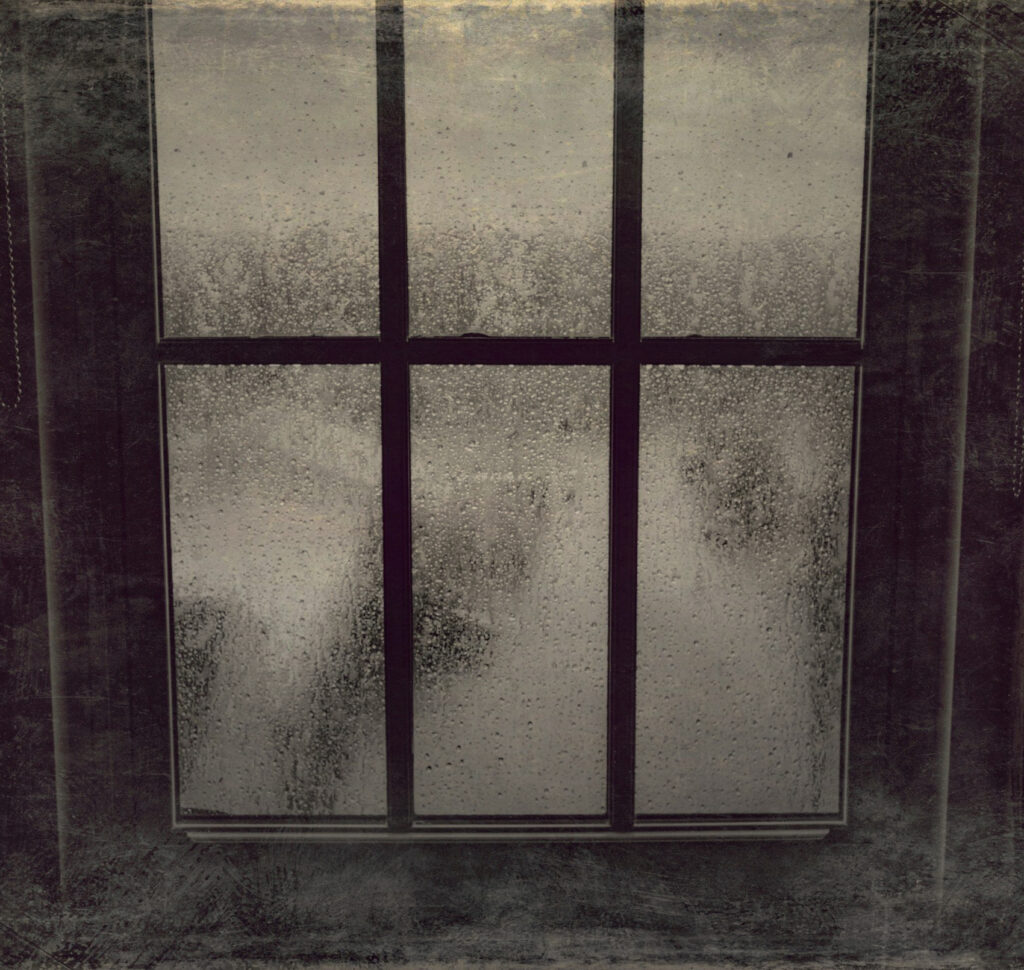My grandmother sent me to bed those days at last light, leaving the dark to adults on the cabin’s front porch. The sound of the creek made me sleep, but not before I counted its dozen voices over stone and pictured gnats balled in their ellipses, like cartoon atoms, over the roil. My grandmother sat for the first time all day. My mother smoked. My grandfather struggled in a metal chair to read the last good stories in the Los Angeles Times. No one flipped on the outdoor bulb because of the moths it drew. The last horsefly pecked and buzzed at the screen.
The sound of the creek made them talk. Maybe, like me, they heard their own voices in the water. Maybe, like me, the water gave them words. All that conversation fed by snow from the eastern Sierra. In no time, even in that heat, the melt plumped alfalfa fields along the narrow road to Bishop. It filled the bellies of horses.
They talked about time. I thought a lot of the one black widow under the floorboards waiting that week to find me, but before I slept I mostly heard them talk about time. A Scottish city where his father was born. My grandmother’s Idaho. My mother’s life before children. All gone, they would sometimes say. Then they would start again.
I don’t know how much of this is dream. The creek made me sleep. The porch filled with story and dark.
Then came the morning we drove back to L.A., down the Owens Valley, its water stolen by the city, its lake turned to alkali flat, most farms gone bust. One desert edge, a sentry gate—all that was left of Manzanar. A dirt road, a sign pointing into the White Mountains—some brutal crest where bristlecone pines first began to live two thousand years before me.
As I grew into a young man, I was afraid of cities and of mountain passes. Both took my breath away. If I was driving, in eight lanes of freeway traffic or on a two-lane pass at 8,000 feet, my arms could turn to stone across the steering wheel. I was only learning then about panic attacks. It never occurred to me that the closeness of people, or the impossible distance from them, could produce the same result. I did not want to leave this life.
Sometimes I would not be able to make it stop—was not able to tell myself, as I can now, Go ahead and die. Words which became, after a while, a cure for my anxieties. The thing that makes me breathe again. All gone, the three of them would sometimes say. Then they would start again, the creek still falling its thousands of feet out of ice into the lives of animals.
___
Richard Robbins was raised in California and Montana but has lived in Minnesota since 1984. His Body Turn to Rain: New and Selected Poems was published by Lynx House Press in 2017. More about his work can be found at www.richardrobbinspoems.com.


3 comments
Shirley Hilton says:
Sep 26, 2021
So lovely and relatable. Thanks for the pleasure.
Michael Eyler says:
Jan 6, 2022
Amazing work! I really enjoyed reading this.
Ana Zalyubovskiy says:
Jul 27, 2022
Beautiful work, Rick.